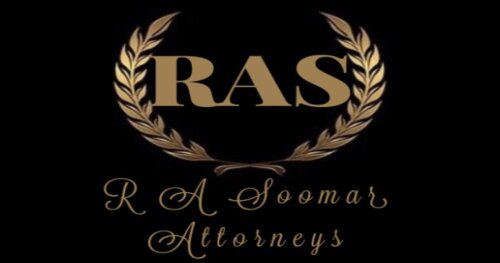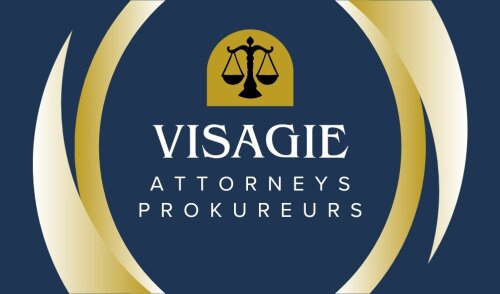Best ADR Mediation & Arbitration Lawyers in Rustenburg
Share your needs with us, get contacted by law firms.
Free. Takes 2 min.
List of the best lawyers in Rustenburg, South Africa
South Africa ADR Mediation & Arbitration Legal Articles
Browse our 1 legal article about ADR Mediation & Arbitration in South Africa written by expert lawyers.
- Resolving Cross-Border Commercial Disputes in South Africa
- Mandatory Consideration: Uniform Rule 41A requires all litigants in the South African High Court to consider mediation before proceeding to trial, making it a standard step in cross-border disputes. Enforceability: Settlements reached through mediation can be made an order of the court, giving them the same legal weight and enforcement... Read more →
About ADR Mediation & Arbitration Law in Rustenburg, South Africa
Alternative Dispute Resolution (ADR) is an increasingly popular approach to managing and resolving conflicts outside the traditional courtroom setting. In Rustenburg, South Africa, ADR methods, such as mediation and arbitration, serve as efficient tools for settling disputes amicably and promptly. Given Rustenburg's dynamic economic landscape, especially with its mining industry, ADR offers businesses and individuals a way to handle disputes swiftly, reducing the time, cost, and often the stress associated with formal litigation. Mediation involves a neutral third party assisting the disputing parties in reaching a mutually satisfactory agreement. Arbitration, on the other hand, involves an arbitrator making a binding decision on the dispute after considering the arguments from both sides.
Why You May Need a Lawyer
While ADR processes are designed to be less formal and often more straightforward than court proceedings, there are several reasons why you might still need legal assistance. For instance, a lawyer can help determine if ADR is suitable for your specific dispute, draft and review any agreements or settlements, and ensure that your legal rights are protected throughout the process. Additionally, in cases of arbitration, legal representation can be crucial in presenting your case effectively and understanding the binding nature of the outcome. Furthermore, businesses might need legal guidance to include appropriate ADR clauses in their contracts or to execute cross-border dispute resolutions effectively.
Local Laws Overview
In South Africa, the ADR framework is supported by a combination of legislation, legal precedents, and industry practices which often guide the process in Rustenburg. The governing statutes include the Arbitration Act of 1965 which provides the legal backing for arbitration processes. South Africa is also a signatory to the New York Convention on the Recognition and Enforcement of Foreign Arbitral Awards, ensuring that arbitral awards are enforceable internationally. Local practices also align with South Africa’s broader civil justice strategy which promotes ADR to ease the burden on the court system and offer alternative access to justice. The Mediation Rules enacted by the Magistrates' Courts from 2014 are also applicable.
Frequently Asked Questions
What is the difference between mediation and arbitration?
Mediation involves a neutral mediator assisting the disputing parties to reach a voluntary agreement. Arbitrations are more formal and involve an arbitrator who listens to both sides before making a binding decision.
Is the decision of an arbitrator final?
Yes, the decision of an arbitrator in South Africa is typically final and binding, similar to a court judgment, and can only be challenged under limited circumstances.
Can ADR be used in any type of dispute?
While ADR can be applied to a variety of disputes, it is often used in commercial, family, and labor disputes, among others. Certain disputes, like those involving criminal matters, do not lend themselves well to ADR.
How can I enforce an arbitration award in Rustenburg?
Arbitration awards can be enforced through the court system. If the losing party does not voluntarily comply with the award, the winning party can apply to the court for an enforcement order.
What role does confidentiality play in ADR?
Confidentiality is a key feature of ADR processes. Information disclosed during mediation or arbitration generally cannot be disclosed publicly or used in future court proceedings unless agreed to by all parties or required by law.
Who decides on the mediator or arbitrator?
The parties typically agree on the choice of mediator or arbitrator. In case of disagreement, institutional rules or courts might assist in the appointment.
Do I need to be physically present for ADR proceedings?
Physical presence may not always be necessary. Many ADR processes can accommodate online or virtual participation, which can be more convenient, especially for parties located in different areas.
How long does an ADR process usually take?
The duration of ADR processes can vary significantly, often being resolved in a few weeks to a few months, depending on the complexity of the dispute and the parties’ cooperation.
What if ADR doesn’t resolve the dispute?
If ADR does not resolve the dispute, parties may still resort to litigation or, in some cases, another form of ADR, such as moving from mediation to arbitration.
Is legal representation mandatory during ADR?
Legal representation is not mandatory, but it can be beneficial, especially in complex cases or when a legally binding outcome is sought. Lawyers can provide valuable guidance through the ADR process.
Additional Resources
For those seeking further information or assistance, several resources can be invaluable. The South African Department of Justice provides resources on ADR processes, while local Bar Associations in the North West Province offer directories of qualified ADR practitioners. Additionally, organizations such as the Arbitration Foundation of Southern Africa (AFSA) can provide support and information on arbitration services. Community mediation centers in Rustenburg can also offer guidance, particularly for family disputes.
Next Steps
If you require legal assistance in ADR mediation and arbitration, the first step is to consult with a legal professional experienced in ADR. They can provide personalized advice tailored to your situation. Additionally, gathering all relevant documentation and evidence about your dispute can help expedite the process. Lastly, consider exploring ADR workshops or seminars in Rustenburg to better understand the procedures and potential outcomes.
Lawzana helps you find the best lawyers and law firms in Rustenburg through a curated and pre-screened list of qualified legal professionals. Our platform offers rankings and detailed profiles of attorneys and law firms, allowing you to compare based on practice areas, including ADR Mediation & Arbitration , experience, and client feedback.
Each profile includes a description of the firm's areas of practice, client reviews, team members and partners, year of establishment, spoken languages, office locations, contact information, social media presence, and any published articles or resources. Most firms on our platform speak English and are experienced in both local and international legal matters.
Get a quote from top-rated law firms in Rustenburg, South Africa — quickly, securely, and without unnecessary hassle.
Disclaimer:
The information provided on this page is for general informational purposes only and does not constitute legal advice. While we strive to ensure the accuracy and relevance of the content, legal information may change over time, and interpretations of the law can vary. You should always consult with a qualified legal professional for advice specific to your situation.
We disclaim all liability for actions taken or not taken based on the content of this page. If you believe any information is incorrect or outdated, please contact us, and we will review and update it where appropriate.
















